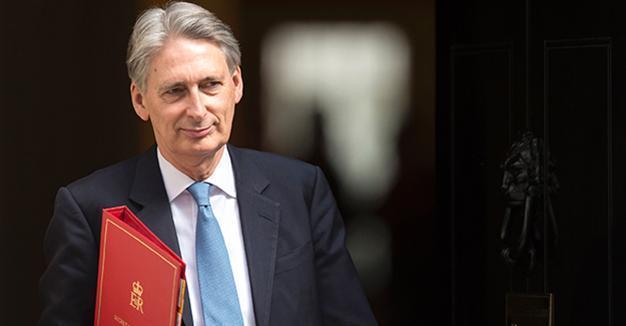New UK Treasury chief says there’ll be no emergency budget
LONDON - The Associated Press

AFP photo
Britain’s new Treasury chief pledged July 14 there will be no emergency national budget - even though there are questions marks hanging over the economy following the country’s decision to leave the European Union.
Philip Hammond, one of Prime Minister Theresa May’s first appointments, offered calming tones of reassurance to the markets and the general public in a series of interviews after taking office. The media blitz suggests that one of the new government’s first priorities is to counter worries that the economy will slip into recession amid a softening of consumer and business confidence.
“The number one challenge is to stabilize the economy, send signals of confidence about the future, the plans we have for the future, to the markets, to businesses, to international investors,” Hammond told Sky News.
“Britain is open for business. We are not turning our back on the world.”
Hammond will meet with the head of the Bank of England, Mark Carney, on July 14 to “assess where we are.”
The comments come ahead of a decision by the central bank’s Monetary Policy Committee on whether to stimulate the economy. Carney has already indicated that some sort of stimulus will be offered during the summer months as his pre-vote warnings about the impact on the economy had begun to crystallize.
One course would involve a reduction in the bank’s benchmark interest rate from the current record low of 0.5 percent, where it has stood since the depths of the financial crisis in March 2009. Such a cut would boost lending and shore up household spending, helping to offset at least part of the Brexit shock.
The bank could also re-start the so-called quantitative easing program under which it effectively pumps money into the economy via the purchase of government bonds from financial institutions.
Hammond acknowledged that investment in Britain had been shaken since the referendum result.
“There has been a chilling effect,” he told the BBC. “We have seen an effect in markets, we have seen business investment decisions being paused because businesses now want to take stock, want to understand how we will take forward our renegotiation with the EU, what our aspirations are for the future trading relationship between Britain and the European Union.”
May was scheduled to make more appointments after a raft of senior positions were announced in the hours after she formally accepted the task of forming a new government following a meeting with Queen Elizabeth II.
The new leader has been quickly moving to put her stamp on the office, making one of her first tasks in office to fire George Osborne, the Treasury chief who campaigned for the country to stay in the European Union.
Controversially, she installed former London Mayor Boris Johnson as foreign secretary.
